Contrary to what many people think, essential oils are more than mere fragrances to scent and beautify the aroma of a home. Many companies specializing in bug repellent products are using these natural plant extracts to help homeowners solve their bug problems.
If you’re looking to use essential oils to repel bugs, whether at home or while you’re up and about, this article features 10 essential oils bugs hate.
Essential Oils Bugs Hate
Essential oils bugs hate are citronella, Virginian cedarwood, lemongrass, litsea, peppermint, lemon-scented eucalyptus, sweet basil, lavender, clove, and geranium.
This isn’t an exhaustive list of essential oils, but some of the most popular options used to repel insects. For detailed explanation of how these essential oils work, please proceed to the next subheading.
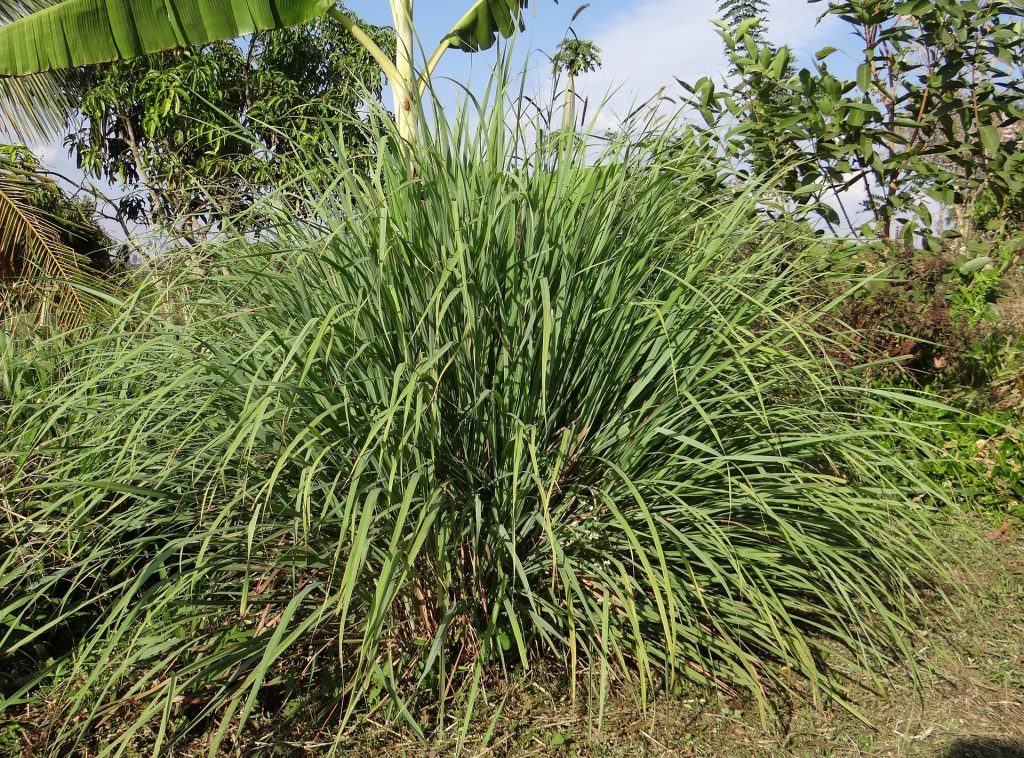
1. Citronella Essential Oil(Cymbopogon winterianus or Cymbopogon nardus)
Citronella essential oil needs no introduction. It’s one of the most widely used plant-based extracts used in commercial formulations sold today to repel insects and bugs.
Although an effective essential oil to repel bugs, citronella essential oil evaporates quickly (highly volatile). When used in homemade repellents, it requires frequent application, about every 20-60 minutes.
Citronella essential oil may repel mosquitoes, sandflies, and other biting flies. The essential oil is generally recognized as safe (GRAS), as it was approved by the FDA in commercial formulations. Homeowners can use products containing citronella essential oil, including candles and sprays for protection from bugs.
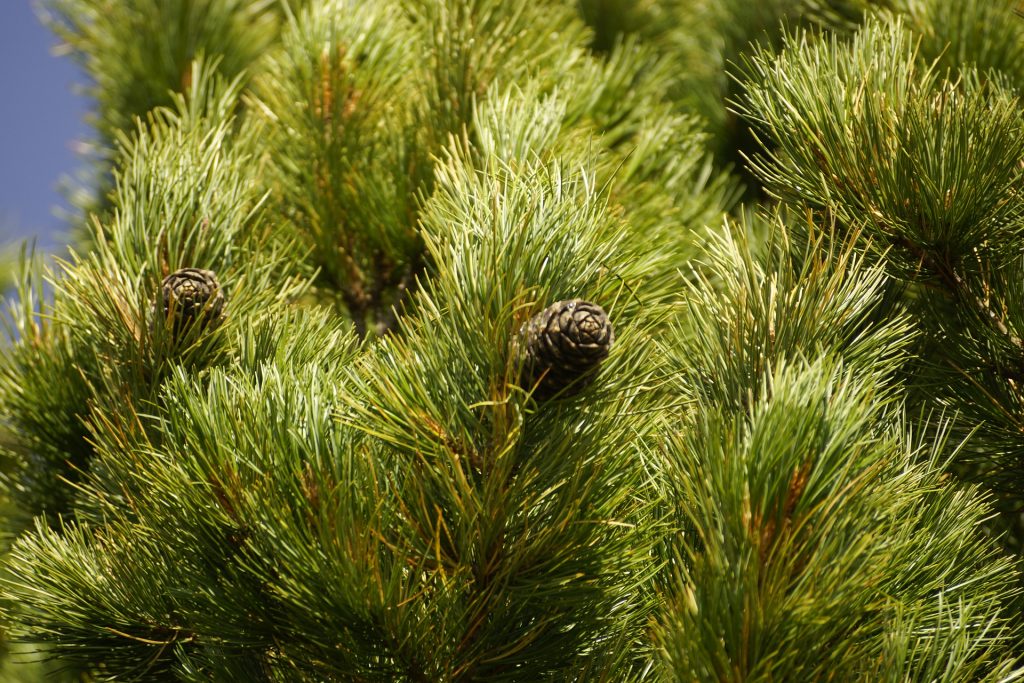
2. Virginian Cedarwood Essential Oil (Juniperus virginiana)
Virginian cedarwood essential oil may be an effective agent to use in DIY ant control products around the home to keep them at bay. A study showed that Virginian cedarwood essential oil repels not only the common ant but was repulsive to red imported ants, as it created a barrier between them and their food source.
With this oil combined in a blend and used to wipe targeted areas in and around the home, you may see a decline in ants.
The cedrol component of the oil is also lethal to the black-legged tick nymphs, according to the same study. However, this only showed 100% mortality when higher doses of the essential oil were used.
Not only is this an essential oil bugs hate, but it’s deadly, too.
Note: All essential oils can kill ants (even water kills them when covered). If essential oils are used as an ant-killer, the concoction must be sprayed directly onto an ant, and in most cases, cover over them. While all essential oils are potential ant killers, not all are repellents.
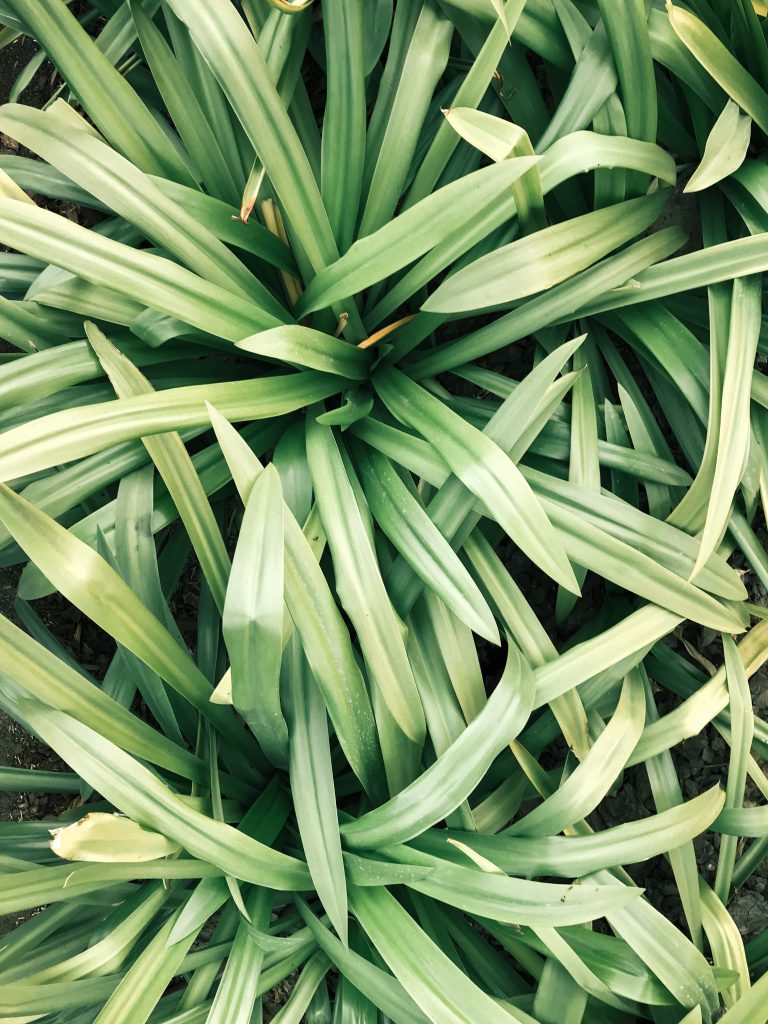
3. Lemongrass Essential Oil (Cymbopogon citratus)
Although most people aren’t crazy about its scent, lemongrass remains one of the best plants from which an essential oil is extracted to repel bugs.
Not only do people benefit from its repellent properties when used in a spray or cream, but it can be used in concoctions to repulse insects in the garden.
This essential oil can be used to repel a wide variety of pests including fleas, ticks, mosquitoes, and lice. Why is lemongrass an essential oil bugs hate?
Simply, the oil contains a naturally occurring chemical called geraniol and geranial. When the essential oil is extracted from the West Indian lemongrass plant, it may contain between 27 to 48% geranial and 3% geraniol.
This compound, according to a study, showed strong tick repellency when used at just 1%.
In another study, at also 1%, lemongrass oil was combined in a solution containing 15% cream and ointment. The results revealed that it provided 50% (and greater) repellency that lasted for about 3 hours.
4. Litsea Essential Oil (Litsea cubeba)
Litsea (or May Chang) is another geranial and geraniol-rich essential oil. Like lemongrass, litsea is another essential oil to repel bugs and insects like mosquitoes, ticks, fleas, and lice.
The oil may contain up to 40% geranial. Depending on the extraction method and the part of the plant used, litsea may even repel the infamous maize weevil.

5. Peppermint Essential Oil (Mentha x piperita)
This is one of the must-have essential oils to keep stock of. From headaches to itching, peppermint is a force to reckon with. It’s also an essential oil bugs hate.
According to a small study done on the brown widow spider and crowned orb weaver, peppermint EO may provide some repellency effect on the arachnids.
In a similar light, peppermint oil repels the mosquito that causes dengue fever. Not only did it provide 100% protection for over 2 hours, but it’s lethal or toxic on contact with mosquito larvae.
A field trial carried out showed that peppermint oil might be a solution to your problem with ants. Although the study tested peppermint’s repellency against the red ant, it may provide a similar effect when used in your home to alleviate ants overall.

6. Lemon-scented Eucalyptus (Eucalyptus citriodora)
Although lemon-scented eucalyptus oil is a great repellent to use in your DIY projects, its high volatility may often leave the homeowner without protection, unless applied often.
This is an essential oil bugs hate, but a by-product (waste) after the oil is distilled provides much better results. This waste is called para-menthane-3, 8-diol (PMD).
If you want to get the benefits of PMD, ensure that you source “oil of lemon eucalyptus” not lemon eucalyptus essential oil. These might seem like the same aromatics, but as mentioned above, PMD is the by-product/waste of the essential oil after hydro-distillation.

7. Sweet Basil Essential Oil (Ocimum basilicum)
If you know anything about gardening and have had the opportunity to grow sweet basil, you know how temptingly delicious smelling the herb is.
The essential oil is no different and, in my opinion, smells the same, with a bit more pungency.
Research conducted using some 30 essential oils bugs hate listed sweet basil as an aroma of choice. The results showed that sweet basil repelled different types of mosquitoes and deterred their feeding activity.
For example, the study revealed that sweet basil offered protection from Anopheles minimus (a genus of vector-bearing mosquitoes) for up to 205 minutes. With this information, sweet basil may be diffused at home or made into sprays and creams to keep mosquitoes and midges at bay.
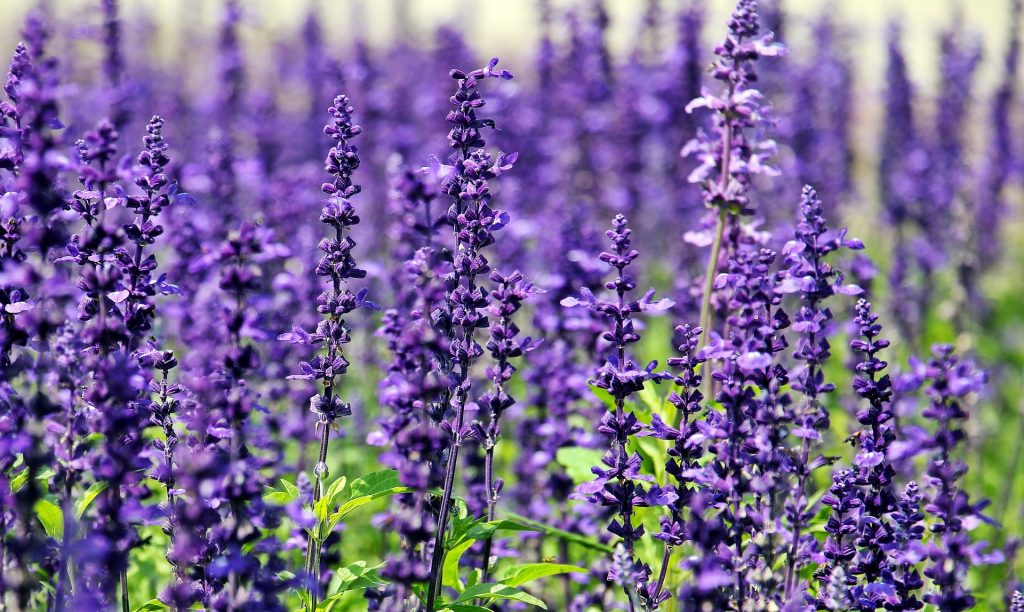
8. Lavender Essential Oil (Lavandula angustifolia)
Make no mistake, although the sweet-floral aroma of lavender is great in perfume blends, research showed that the plant can be used as a repellent.
When compared to DEET, the study showed that lavender essential oil has a good repellent effect against the hard-bodied tick. Using up to 3 different levels of concentration (5, 10, 20%) the oil provided repellent protection for up to 40 minutes at 5% and 120 minutes at 10 and 20%.
Seemingly, when using essential oils to repel bugs, a higher concentration provided better repellency.
If you’re looking for other essential oils to repel ticks, a small-scale research highlights fewer commonly used essential oils.
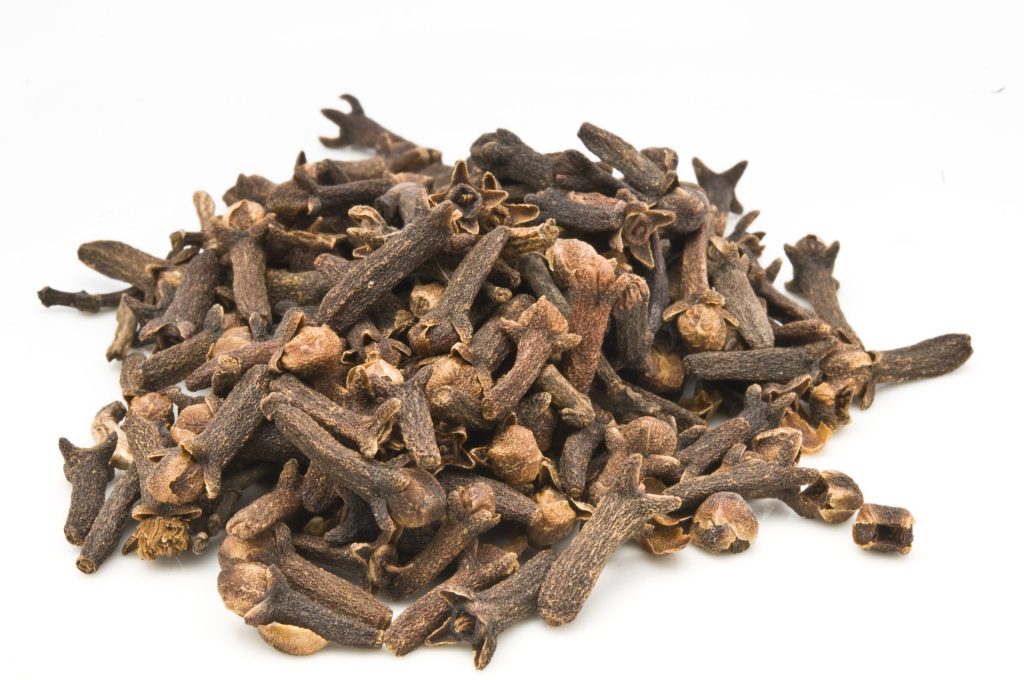
9. Clove Essential Oil (Syzygium aromaticum)
A powerful compound in clove essential oil comprising over 90%, is responsible for the oil’s repellent activity.
Eugenol, according to a study, may repel various genus of ticks, including the Asian Bluetick and tropical horse tick.
The tick isn’t the only pest clove essential oil repels. The imported fire ants stand no chance against the pungent, spicy plant. A study showed that clove powder kills and repels fiery ants.
To supplement, clove oil has a repellent action against chiggers. When used at 5%, the oil demonstrated 100% repellency against them diluted in absolute ethanol.

10. Geranium Essential Oil (Pelargonium graveolens)
Geranium essential oil contains a group of compounds known for their repellent properties. These chemicals include linalool, geraniol, and citronellol.
Not only is the oil used in commercial formulations against mosquitoes, but it’s also a worthy tick opponent. A study showed that the oil can be used as a natural tick repellent. Geranium oil may have a similar effect as citronella essential oil.
Essential Oils Bugs Hate, Conclusion
While it’s a great idea to use essential oils bugs hate, it’s important to learn how to use essential oils safely. Essential oils are extracts from plants, but if used improperly, could cause harm. This is especially the case if you choose to add them topically.
This post isn’t an exhaustive list. We will be writing another article to speak about other essential oils that repel bugs.




